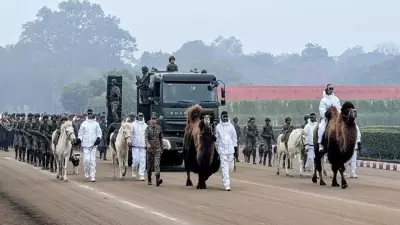
The Himachal Pradesh High Court has granted additional time to the state government to file its response in a significant case concerning the extension of terms for municipal corporation mayors. This development came during a hearing on Monday that addressed a public interest litigation challenging the constitutional validity of the term extension provision.
Court Proceedings and Government Response
During the hearing before a division bench comprising Justice Tarlok Singh Chauhan and Justice Virender Singh, the state government counsel requested more time to prepare and submit a comprehensive reply to the petition. The court acknowledged this request and scheduled the next hearing for August 26, giving the government adequate time to formulate its legal position on this matter.
The petition specifically challenges the amendment to the Himachal Pradesh Municipal Corporation Act, 1994, which allows for extending the terms of mayors beyond their standard tenure. The legal action was initiated by former deputy mayor of Shimla Municipal Corporation, Rakesh Kumar, who contends that such extensions violate constitutional provisions and established democratic principles.
Background of the Legal Challenge
The controversy stems from the state government's decision to extend the term of Satya Kaundal, the current mayor of Shimla Municipal Corporation. This extension was made possible through an amendment to the existing municipal legislation, which the petitioner argues creates an uneven playing field in municipal governance.
According to the petition, the term extension provision fundamentally contradicts the spirit of the 74th Constitutional Amendment, which governs urban local bodies across India. The amendment was designed to ensure regular elections and democratic representation in municipal corporations, making the extension clause potentially unconstitutional.
The petitioner has emphasized that allowing such extensions could set a dangerous precedent where elected representatives might seek to prolong their terms through legislative changes rather than facing the electoral process. This, he argues, undermines the democratic framework of local self-governance.
Implications and Next Steps
The outcome of this case could have far-reaching consequences for municipal governance not only in Himachal Pradesh but potentially across other states with similar provisions. The court's final decision will determine whether such term extensions can legally stand or if they must be struck down as unconstitutional.
The August 26 hearing is expected to be crucial as the state government will present its arguments defending the amendment. Legal experts are closely watching this case as it touches upon the delicate balance between legislative authority and constitutional limitations in local body governance.
Meanwhile, political observers note that the decision could impact the upcoming municipal elections and the political dynamics within urban local bodies in Himachal Pradesh. The case represents a significant test of the judiciary's role in safeguarding democratic processes at the grassroots level of governance.





